




 |
   |
 |
|
Rock'n'Roll Band Rocket Summer Tommy Roe |
Roedelius Cliff & Linda Rogers Edward Rogers |
Rod Rogers Rohmer |
Romantic Warriors Robi Rosa |
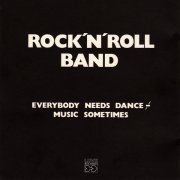 |
Everybody Needs Dance Music Sometimes (2004, recorded 1974/75, 35.33/45.30) **½/0 (½) |
|
| I'm Gonna Roll Don't Want Your Recco-Player You Can Do the Jingle 88 Dance Halls Love Me/Come Back Home California Rag I Know What You Want Sister Downhill Blues |
Come 'Round Betty Hard Grown Boys Catfish Blues [CD adds: Gotta Go Downtown Fever Seventh Son] |
|
Current availability:
Mellotron used:
I'm trying to work out what's actually going on with the 'does what it says on the tin'-monikered Rock'n'Roll Band's Everybody Needs Dance Music Sometimes, an assertion I would contest, frankly. Despite being released in 2004, it was recorded in 1974/75 by an ensemble fronted by Paavo/Pave Maijanen, sitting firmly in the era's rock'n'roll revival, in the standard 'twenty years later' pattern, the end result being a slightly pointless pastiche of various '50s styles, at its best on the atypical 88 Dance Halls, the instrumental California Rag and Come 'Round Betty. There's a reason this wasn't released until three decades later.
Esa Kotilainen plays Mellotron on CD bonus Fever (you know, the Peggy Lee one), long before I believe he owned one, with string chords drifting in and out of the track. Really, don't bother.
See: Pave Maijanen
Rocket Scientists (US) see: |
 |
 |
Do You Feel (2007, 47.17) *½/T |
|
| Break it Out So Much Love Do You Feel Save All I Have High Life Scenery A Song is Not a Business Plan Taken Aback |
Colors Run to You Hold it Up Waiting So, in This Hour... |
|
Current availability:
Chamberlin used:
The Rocket Summer are effectively (Stephen) Bryce Avary's solo project, whom, going by his/their third album, 2007's Do You Feel (wot, no question mark?), do that horrible 'modern rock'/singer-songwriter thing, as typified by opener Break It Out or A Song Is Not A Business Plan, with Avary's whiny voice (Kurt Kobain wannabee, no idea how) ruining everything it touches. Actually, you can't tell from the music, but it seems Avary is a full-blown God-botherer, too, so that's another reason to dislike this crummy album.
Patrick Warren's on Chamberlin again, with strings on Run To You and closer So, In This Hour..., with cellos towards the end of the latter, just scraping a single T. So; a modern rock/CCM hybrid, with minimal tape-replay: run for the hills.
Rockfour (Israel) see: |
 |
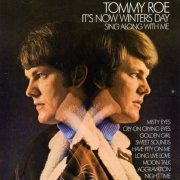 |
It's Now Winters Day (1967, 37.40) **½/½ |
|
| Leave Her Moontalk Aggravation Golden Girl Misty Eyes Have Pity on Me Sing Along With Me Long Live Love |
Nightime Cry on Crying Eyes Sweet Sounds It's Now Winters Day |
|
Current availability:
Mellotron used:
Tommy Roe is best known as an occasional hitmaker, notably for 1962's Sheila and '69's Dizzy, making It's Now Winters Day something of a minor obscurity. To be honest, its '60s pop feel had become distinctly outdated by 1967, although I've seen the record described as Roe's nod to psychedelia, chiefly due to being a Curt Boettcher (Millennium, Sagittarius) production, thus automatically falling into the same category as his other projects. It isn't a bad album as such, just a rather dull and dated one, although I can already hear Boettcher fans howling their disapproval...
Someone (probably Boettcher) plays Chamberlin flutes on the title track, although not so's you'd particularly notice. So; Boettcher fans will want this, ditto lightweight '60s pop types, but the rest of us are probably better off steering clear, I think.
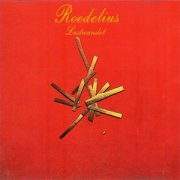 |
Lustwandel (1981, 38.14) ***½/T½ |
|
| Lustwandel Legende Ansinnen Betrachtung Draussen Vorbel Harlekin Von Ferne Her Vom Fliegen |
Wilkommen Pirouette Dein Antlitz Langer Atem Die Andere Blume |
|
Current availability:
Mellotron used:
Hans-Joachim Roedelius was born in 1934, making him getting on for forty when he released his first albums with Cluster, then Harmonia, putting him at the pulsating heart of what became known as Krautrock. His first solo album came in 1978, 1981's Lustwandel being his sixth, startlingly (he released no fewer than three the following year). Unlike the sinister, fake-cheery fairground feel of his second effort, '79's Jardin au Fou, Lustwandel sounds how I'd expect a Roedelius album to sound: gentle and reflective without going anywhere near New Age. Many of its tracks are effectively piano pieces, with or without embellishment, although Draussen Vorbel is all Clavinet over sequenced synths, Von Ferne Her is more percussion than anything, while Wilkommen is a twisted Mediæval jig, played out on some early form of wind instrument.
Although it isn't credited, Roedelius seems to be playing a Mellotron (the ex-Tangerine Dream MkV, according to Tony Haynes) on a handful of tracks, with strings, flutes and cellos on the opening title track, while Ansinnen is effectively an overdubbed Mellotron strings solo piece, with far more distant strings on Dein Antlitz. There are other 'is it/isn't it' moments, not least the cellos in Von Ferne Her, but despite a lack of any credit, they sound more real than anything. So; an intriguing album, in a class of its own, really, but one that should appeal to Krautrock enthusiasts looking for something a little gentler, or relaxation types trying to up the BPM a bit. Or, of course, anyone interested in hearing an accomplished record by a master craftsman, although don't go too far out of your way for its Mellotronic input.
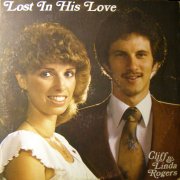 |
Lost in His Love (197?, 31.38) */TT½ |
|
| Lost in His Love I'm Yours The Next Time I See You More Than Conquerors He's Alive The Gospel Truth I've Been Blessed Steeple Song |
More of You Medley: What Will Ya Do/Come Unto Jesus |
|
Current availability:
Chamberlin used:
Ah, Mark Medley's latest Christian horror... I've no idea whether the husband/wife team of Cliff & Linda Rogers made any more records - we can only hope not - but the undated Lost in His Love (sometime between the late '70s and early '80s would be my guess, going by Cliff's suit and the haircuts) is, rather predictably, the most hideous thing I've heard since, well, the last Christian horror Mark sent me. There are, of course, no high points, although the album's least unpleasant track is probably the 'funky' The Gospel Truth, while the happy-clappy opening title track and I'm Yours are at least mildly amusing. Most of the rest consists of the expected slushy, God-bothering balladry (particularly nasty examples: He's Alive and closer Medley: What Will Ya Do/Come Unto Jesus), but the record reaches its nadir on The Next Time I See You, 'sung' by the Rogers' two little girls (Amy, 4 and April, 3, pictured on the rear sleeve), an event that might just possibly redefine the word 'schmaltz'. Putrid.
Our old Pal Larry Benson (Gateway Singers) plays his Chamberlin on half the album, with vibes and strings on More Than Conquerors, strings (and real brass) on He's Alive, strings on Steeple Song and More Of You and strings and flutes on Medley: What Will Ya Do/Come Unto Jesus, although the backing vocals on several tracks sound real. Well, I've heard some stinkers, but The Next Time I See You is right up there with the best/worst of 'em, the rest of the album paling into insignificance in comparison. All I can say, somewhat appropriately, is: Jesus. Fucking. Christ.
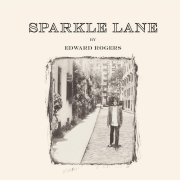 |
Sparkle Lane (2010, 42.32) ***/T |
|
| Symbols 'n Mascots Passing the Sunshine Sparkle Lane Unknown Until Today Last of the Artful Dodgers Land of the Free Guy Fawkes Nite Little Angel |
Boys in Grey Slow World Sometimes You Win Whatever You've Been Told Walk Under the Clouds Original Excess Boy |
|
Current availability:
Mellotron used:
After sustaining life-changing injuries in the '80s, British-born New York resident Edward Rogers wasted no time in getting back to playing and writing music, releasing his solo debut in 2004. 2010's Sparkle Lane is his third album, a strangely naïve work, material such as Unknown Until Today and Boys In Grey having a very British 'kitchen sink' kind of vocal delivery, reminding me, weirdly, of early Marillion in places, at least vocally. To be honest, a little of Rogers' half-spoken delivery goes a long way, but the title track and Boys In Grey, amongst others, make this worth hearing.
Joe McGinty plays Mellotron, with a real-sounding string line on Last Of The Artful Dodgers, although all other string parts seem to be either generic samples or real.
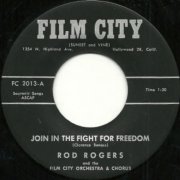 |
7" (1965) **/TTTT Join in the Fight for Freedom Ballad of MacArthur |
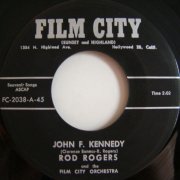 |
7" (1965) **/TTT John F. Kennedy The 678th |
Current availability:
Chamberlin used:
Join In The Fight For Freedom b/w Ballad Of MacArthur and John F. Kennedy b/w The 678th, both (I believe) from 1965, are just two of many, many 'song-poem' singles released by Rodd Keith, these ones under the pseudonym Rod Rogers & the Film City Orchestra, Film City being the two-bit label on which this drivel appeared. The lyrics are hysterically bad, as you might expect, literal to the point of autism, while the rhyming dictionary takes a good hammering in true 'total amateur' style, although Ballad Of MacArthur wins this particular round, as it gives us a four-minute resumé of his life story, in full-on hagiographic mode.
It sounds like the entire arrangements on all four songs were played on Keith's Chamberlin, with brass all over Join In The Fight For Freedom, while Ballad Of MacArthur's a strings-and-brass-fest, not to mention the military snare, various brass, woodwind and string instruments and a trumpet (?) solo on John F. Kennedy, and are those overdubbed Chamby voices? Hard to tell. Only worth tracking down for the dedicated masochist.
See: Rodd Keith
Rogue Element (UK) see: |
 |
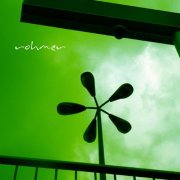 |
Rohmer (2008, 61.26) ***/TTAngolo 1Ecran Magique Lhz V. (Moda Reale) Wittgenstein Mon Amour 2.12 Cifra3 Angolo Due Metodiche Di Salvezza Elimini-Enne |
Current availability:
Mellotron used:
Rohmer are essentially a Finisterre reformation, although I wasn't aware they'd split, involving that outfit's Fabio Zuffanti, Boris Valle and Agostino Macor. They've only released one, eponymous album to date, a mostly instrumental, relaxed, kind-of post-rock/prog crossover effort, although the band seem keen to be classified as jazz. Gentle piano cadences interact with flute, distant trumpet, viola and sax at different points, ambient, 22-minute closer Elimini-Enne being the album's centrepiece.
Agostino Macor (Maschera di Cera) plays Mellotron, with strings on opener Angolo 1 and Lhz, flutes and strings on V. (Moda Reale) and choirs on Wittgenstein Mon Amour 2.12, all to decent effect, without ever being overbearing. I'm not at all sure Rohmer is going to appeal to many prog fans, but, like Zuffanti's eponymous effort from the following year, post-rock types may wish to apply.
See: Fabio Zuffanti | Finisterre | Maschera di Cera
Rolling Stones (UK) see: |
 |
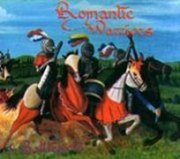 |
Battlefield (1993, 58.33) **½/TT |
|
| In Progress The Dreambreaker Open the Gates Ode to Romantic Warriors Battlefield You're My Life Coloured Shades of a Rainbow |
Montmartre Spread Your Wings Song to John March of the Heartknights Beyond the Landmarks |
|
Current availability:
Mellotron used:
Romantic Warriors (named for Chick Corea's classic fusion LP, of course) appear to have been a one-off project instigated by the Italian Vinyl Magic label's mastermind, Beppe Crovella, ex-Arti e Mestieri. The cover of Batttlefield is a hoot, especially if it's not supposed to be funny, which it quite clearly isn't. Note the oxen-drawn cart carrying the B3 and Leslie, not to mention the leading knight's strap-on synth controller (oo-er missus). I'm afraid the music isn't that great, either; the analogue and digital keys sit uncomfortably together, with plenty of Hammond, overlaid with cheesy digital brass and orchestral stabs. Current progressive bands seem to've learnt to mix the two with more subtlety.
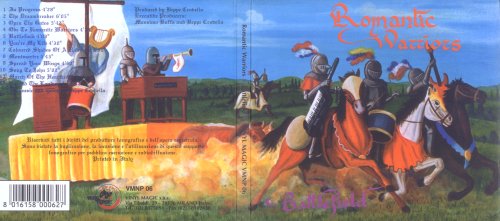 |
Much of the album is faux-ELP (Emerson obviously being Crovella's chief influence), crossed with a rather dodgy Euro-neo-prog feel, giving rise to bad pseudo-AOR stuff like The Dreambreaker. A fair chunk of the album's instrumental, which at least spares us the female chorus, but gives Crovella full rein with the brass samples. Swings and roundabouts, I suppose. The Mellotron can be heard on a few tracks; mostly strings with the occasional flute part (chiefly on the cringeworthy Song To John), swelling above whatever else is going on at the time, at least detracting slightly from the cheap digital-ness of the rest of the album. None of the use is exactly groundbreaking and is invariably mixed with sampled strings or brass, but at least it's there. Strangely, the album's best track is kept till last, with Beyond The Landmarks being the most successful of Crovella's old/new fusion attempts (pun intended), but, sadly, he resists the temptation to put any Mellotron on the track.
Batttlefield is another of those albums I haven't played in a while that has deeply disappointed me upon my return; I'm afraid to say it's far cheesier than I remember it, its only real saving graces being the playing and a few (a very few!) of the keyboard sounds. Oh and the cover. Don't go too far out of your way.
See: Beppe Crovella | Arti e Mestieri | Cantina Sociale | Secret Cinema | Tower
 |
Mad Love (2004, 70.54) **½/T |
|
| Dancing in the Rain Lie Without a Lover Crash Push My Eyes Adore You Como Me Acuerdo Heaven Can Wait This Time California |
Try Me Solitary Man Never Know the Truth Do You Remember Mad Love Commitment Mas y Mas (Crash Push) Noche Fria (Dancing in the Rain) |
|
Current availability:
Mellotrons/Chamberlin used:
Robi Rosa, a.k.a. Dräco Rosa, Robby Rosa, Robi Draco Rosa, Draco Cornelius Rosa, Draco and Tommy Leaman, amongst others (!), is one of two ex-members of famous Puerto Rican boyband Menudo to have significant solo success, the other being the better-known Ricky Martin. Menudo? Probably the ultimate boyband, in that members leave at the age of sixteen, meaning the band have worked their through around thirty members in twenty years, although, given that most of their releases have been for the Latin market, you're forgiven for not having heard of them.
2004's Mad Love (as Robi Draco Rosa) is more varied than his early work, though I'd be hard-pushed to say it's a better listen, with schlocky ballads like California and Solitary Man vying with the more Latin stuff for which is likely to bore the average listener the most. Best track? The 'hidden' one, strangely, Commitment, which has a bit of a psychedelic bent to it, sounding completely unlike the rest of the album. The ubiquitous Patrick Warren (and bloody good luck to him) plays Chamberlin on the album, with what sounds like Chamby flutes on My Eyes Adore You and more definite ones on Solitary Man. It's quite possible that some of the album's strings are Chamby, too, but it's so hard to tell that I've had to leave them out.
See: Samples etc.